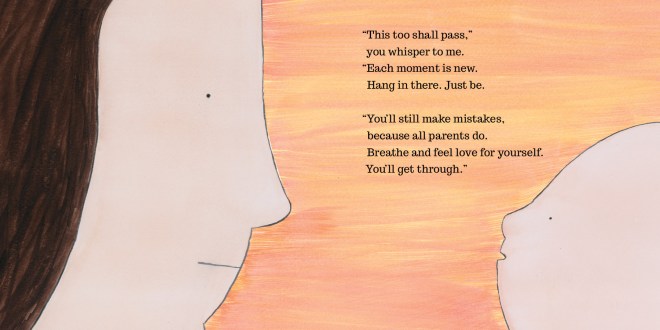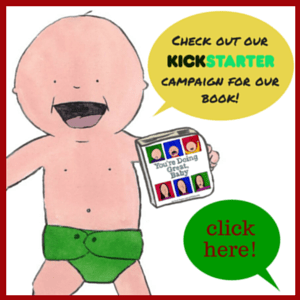No Mummy-blog would be complete without a post about how to deal with the existential conundrum that is the tension between simultaneously loving your children/baby but also feeling you want to press the ejector seat and zoom up and out of your life sometimes. As the wise and wonderful Cheryl Strayed says, “Two things can both be true”.
Why are people compelled to tell new parents ad infinitum “They grow up too fast” and it’s variations: “Enjoy every second”, “It’s the happiest time of your life”. In my own experience I find that it’s especially people whose children have grown up that say these things.
One possible reason they say it is that it’s all true. Or at least it was true for them.
Another potential reason is that, looking back, they wish they had enjoyed more of their children’s early life.
Or that they weren’t as maxed-out as our generation are with information, technology, work, communication, inner and outer expectations and debt.
Writing the phrase
makes me simultaneously roll my eyes, wince, feel a lump in my throat and a swell of love, sorrow, reminiscence and regret.
Being just six years into being a parent, I can see why everyone loves to tell new parents this, because they do grow up so fast. But I hated hearing it when I was in the thick of first-time parenting and feeling overwhelmed, traumatised, depressed, inadequate, lonely. My days felt unbearably long, every phase throwing up new challenges before I’d caught my breath from the last.

Second time around I have been able to savour a lot more, but my added experience and confidence doesn’t change the fact that having little children is in-tense.
Our two are 19 months and 6 years old now, and I can rattle off a list of my favourite things about these ages:
19 months: Beginnings of talking, learning to run, loves his soft toys Grover and Baby, bright-eyed and always ready to interact and say hello or good bye, his baby curls.
6 years old: Thoughtful, funny, curious about the world, fun to read with, great to play games with, loves his little brother, always ready to have a laugh.
But I can also summon up a list of the things that I find difficult: all the stuff I have to take everywhere, can’t nip to the shops, hard to go out at night, house a permanent mess, washing piled high, night waking, endless negotiations about screen-time, finding healthy food they’ll eat… Writing that list and looking at it alongside the list of the things I love about these ages, the list of complaints look trivial. But they create real frustrations at times, and it’s those times that if you told me to enjoy every moment, I might want to wallop you over the head with poor old Grover.
One of the reasons we so badly need a village to raise a child is that the pure intensity of rearing children is instantly more enjoyable once it feels like more of a shared responsibility, or at least something done in the company of other adults.
I find that time flies by happily when we’re outside. Even faster when there are other adults and children there too. The kids play and the parents chat, while playing with/feeding the smaller ones.
Maybe someone should only be allowed to say “Enjoy every second/They grow up too fast” etc. to a new parent if they’ve also done something to show support for them and all the hard work they’re doing.
An understanding look when their toddler is throwing a tantrum, for example. Or offering to help them load load groceries onto the check-out as they struggle to do it whilst also holding their baby. Or sharing that they themselves didn’t manage to enjoy every second but that in retrospect they see the sacred beauty of that early, intense time.
For more on this subject, read the seminal ‘Don’t Carpe Diem‘ by Glennon Doyle Melton, Andi Fox’s ‘Complaining About Motherhood‘, ‘Savour it Anyway‘ by Alicia from the Magical Childhood blog and Mia Freedman’s piece ‘My son is leaving school and I’m in pieces‘.
![The happiest time of your life [eye roll]](https://i0.wp.com/doinggreatbaby.com/wp-content/uploads/sites/2/2015/10/They-grow-up-too-fast-1.jpg?resize=825%2C510)

























